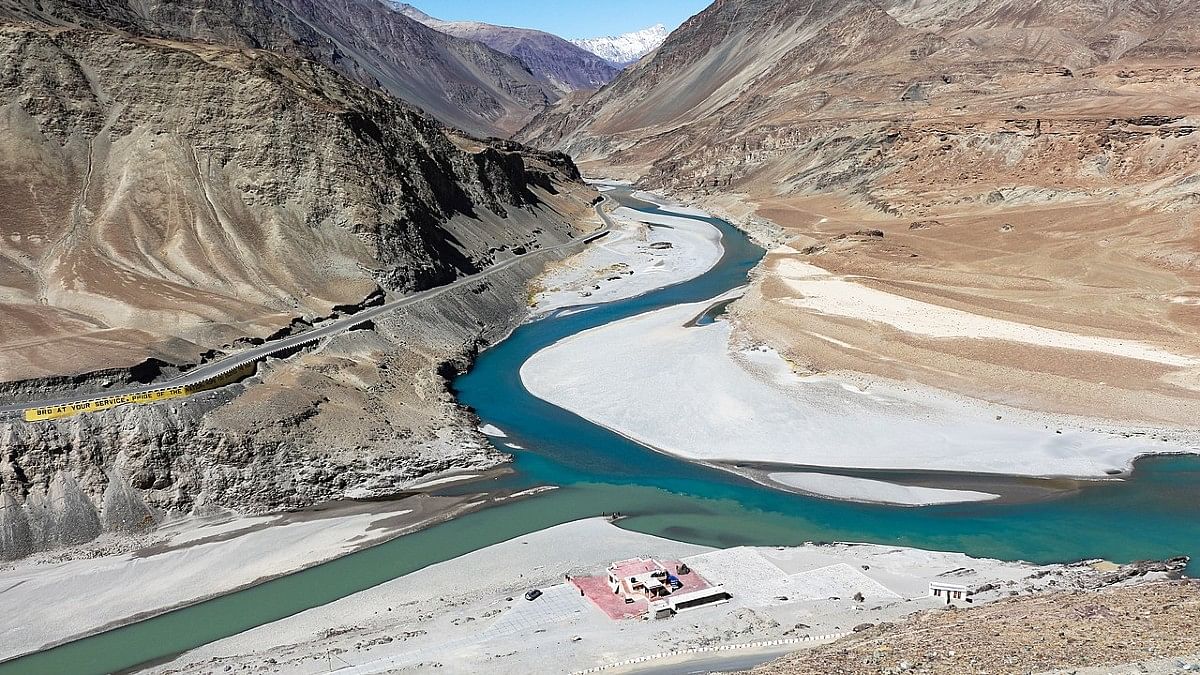- When Pakistan requested arbitration at the Permanent Court of Arbitration to resolve the interpretation and application of the IWT, India objected.
- On July 6, 2023, the court unanimously rejected each of India’s concerns in a judgement (which is binding on both parties without appeal).

The Big Idea
- Despite their stormy relationship, the Indus Waters Treaty (IWT) of 1960 has long been lauded as a great example of collaboration between India and Pakistan. The treaty has survived multiple disagreements and created thorough dispute settlement procedures. However, there has been an increase in the use of legal procedures to address disputes resulting from India’s building of run-of-river hydroelectric projects in recent years.
What is Indus Water Treaty (IWT)?
- The Indus Waters Treaty is a water-distribution treaty between India and Pakistan, brokered by the World Bank signed in Karachi in 1960.
- This deal granted India authority over the water flowing in three eastern rivers in India: the Beas, the Ravi, and the Sutlej.
- The pact granted Pakistan jurisdiction over the water flowing in three western rivers of India: the Indus, the Chenab, and the Jhelum.
- Partitioning the Indus River System was unavoidable following India’s division in 1947.
- The sharing mechanism developed after lengthy talks divided the Indus system in half.
- The pact is based on the idea that water does not respect international boundaries and that upper riparians have a responsibility to lower riparians.
What are the Disputes and Challenges?
- Construction and design of run-of-river hydroelectric projects by India–Kishanganga (a tributary of the Jhelum) and Ratle, a hydroelectric plant on the Chenab–objection from Pakistan–may have an impact on the flow and utilisation of water downstream.
- Pakistan initiated arbitration at the Permanent Court of Arbitration; India opposed to the court’s jurisdiction, arguing that the neutral expert method should be used instead.
- There is a pervasive environment of suspicion and difficult relations between India and Pakistan, which impedes efficient treaty cooperation.
- The premise of unchanging water availability under the IWT becomes increasingly dubious when precipitation patterns and runoff change.
- The allocation of water resources in the treaty does not fully account for the possible impact of climate change on future water supply, necessitating the need for flexible methods.
- The IWT does not adequately serve both countries’ rapidly rising industrial and agricultural needs.
Course on Water Principles
- Equitable and Reasonable Utilisation (ERU): This principle emphasises riparian governments’ fair and reasonable use of water resources.
- The No Harm or Do No Harm Rule (NHR) asserts that riparian states should not cause major harm to neighbouring states that share the same watercourse. It necessitates taking the required precautions to avoid or mitigate any negative consequences that may result from water-related activity.
- Integrated Water Resources Management (IWRM): The IWRM approach views water resources as an interconnected system that takes social, economic, and environmental concerns into account. Optimise and sustain the utilisation of water resources.
- Water resources should be handled at the basin or watershed level since it is the most natural unit for water management.
- Prior Informed Consent: Obtaining the permission of affected communities and stakeholders before carrying out projects or activities that may have a substantial impact on water resources.
- Environmental Protection: Watercourses’ ecological integrity must be protected and conserved. Water quality, biodiversity, and aquatic habitats must all be preserved.
- The World Bank’s Role: As a signatory to the treaty, the World Bank might use its platform to build a transnational alliance of epistemic communities.
Source: https://www.thehindu.com/opinion/op-ed/more-than-court-action-revisit-the-indus-waters-treaty/article67098290.ece
